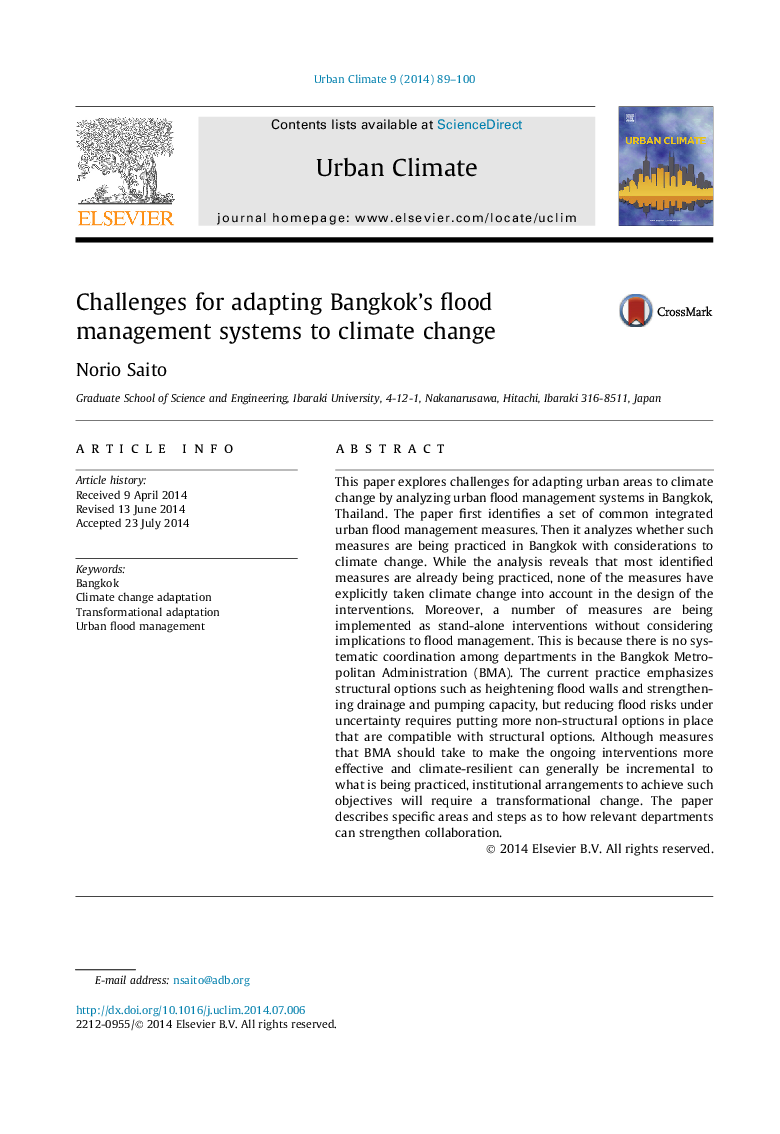| کد مقاله | کد نشریه | سال انتشار | مقاله انگلیسی | نسخه تمام متن |
|---|---|---|---|---|
| 143764 | 163474 | 2014 | 12 صفحه PDF | دانلود رایگان |
• Bangkok is implementing a number of measures to address its urban flood risks.
• None of the measures have explicitly taken climate change into account.
• Measures are being taken by various departments with little coordination.
• ‘Incremental adaptation’ is generally sufficient in terms of measures taken.
• Institutional arrangements require a ‘transformational adaptation.’
This paper explores challenges for adapting urban areas to climate change by analyzing urban flood management systems in Bangkok, Thailand. The paper first identifies a set of common integrated urban flood management measures. Then it analyzes whether such measures are being practiced in Bangkok with considerations to climate change. While the analysis reveals that most identified measures are already being practiced, none of the measures have explicitly taken climate change into account in the design of the interventions. Moreover, a number of measures are being implemented as stand-alone interventions without considering implications to flood management. This is because there is no systematic coordination among departments in the Bangkok Metropolitan Administration (BMA). The current practice emphasizes structural options such as heightening flood walls and strengthening drainage and pumping capacity, but reducing flood risks under uncertainty requires putting more non-structural options in place that are compatible with structural options. Although measures that BMA should take to make the ongoing interventions more effective and climate-resilient can generally be incremental to what is being practiced, institutional arrangements to achieve such objectives will require a transformational change. The paper describes specific areas and steps as to how relevant departments can strengthen collaboration.
Journal: Urban Climate - Volume 9, September 2014, Pages 89–100
